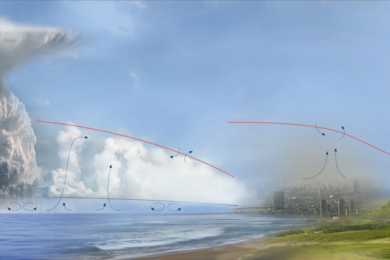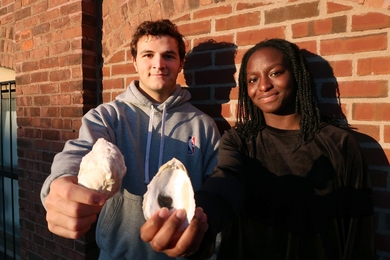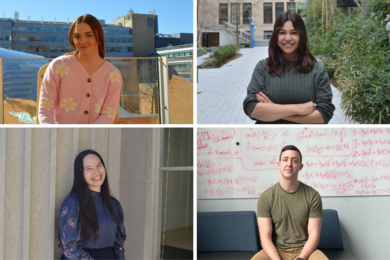"Bioterrorism is one part bio and 1,000 parts terrorism," Richard D. Klausner, executive director of the Bill and Melinda Gates Foundation Global Health Program, told the Forum on Bioterrorism, part of the Whitehead Institute 's 20th symposium on Oct. 29.
The issue hit close to home last fall, when fear swept the country as five people died and 13 others became ill after inhaling anthrax spores that were found in mail or mail processing facilities in Washington, New York, New Jersey, Florida and Connecticut.
"Almost all biotechnology and biomedicine has positive and negative applications and could be subverted to harmful use," said Professor of Biology Gerald R. Fink, Whitehead's founding member and former director, who was the moderator of the session in Kresge Auditorium.
Klausner concurred. "Technology has been misused; there is no reason biotechnology won't be misused to create weapons," he said.
Unlike conventional terrorism, bioterrorism is not a "lights and sirens" kind of attack, said Margaret A. Hamburg, vice president for biological programs at the Nuclear Threat Initiative. It might appear as an unfolding disease epidemic spread out in time and place, hard to distinguish from naturally occurring diseases. From a terrorist's point of view, bioterrorism can be relatively low-cost and anonymous for the perpetrator while it causes large numbers of casualties and a great deal of panic.
Hamburg advocated strengthening the public health infrastructure, training health professionals to detect and respond to clusters of disease, and improving communication between the public and private sectors. She and Klausner agreed that the split between public health and private medicine could be detrimental in identifying "suspicious" epidemics, and that local and national government is not "optimally structured" to meet the challenge of responding to a wide-scale attack.
Hamburg said we also need better foreign intelligence about potential bioterrorists. "How serious is the threat?" Hamburg said. "We cannot afford to be complacent."
A version of this article appeared in MIT Tech Talk on November 6, 2002.







